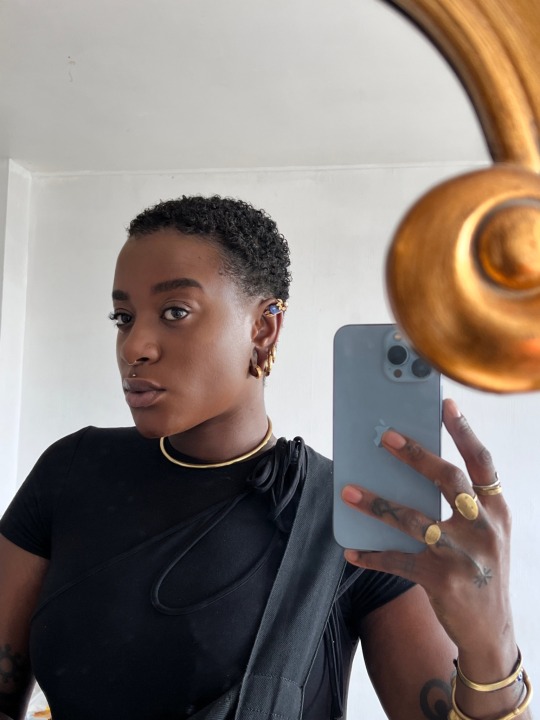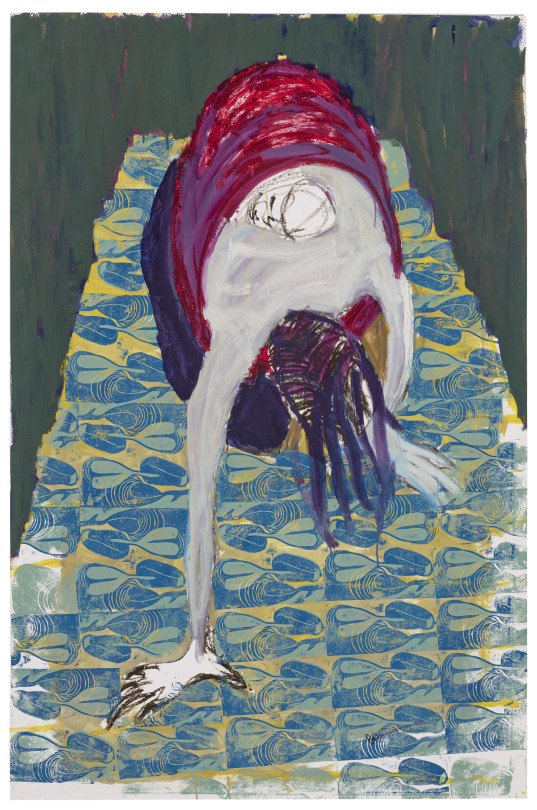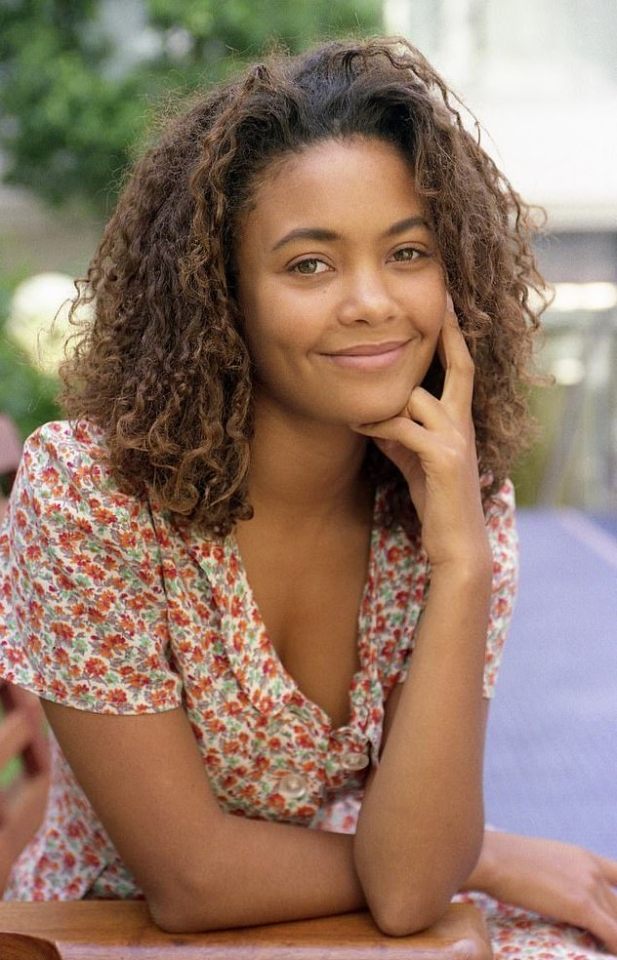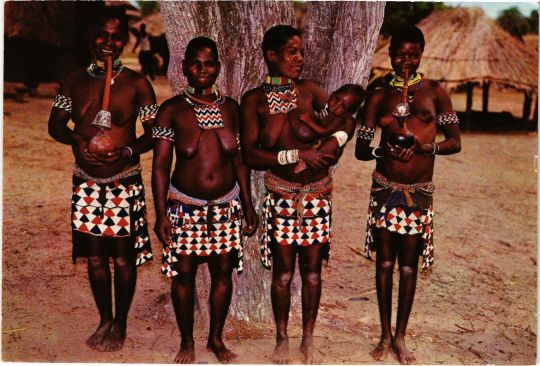#zimbabweans
Text

🖤
#black tumblr#black woman appreciation#black women#black beauty#ebony#sunkissed#melanin#south african#zimbabweans
966 notes
·
View notes
Text
Get in touch with us for virtual reality service. We offer virtual tours, virtual reality in education, virtual meetings and VR/AR software development #funsensezim #virtualreality #virtualtours #zimvirtualtours #zimvirtualtours #zimbabwe

#entrepreneur#technology#business#marketing#virtual reality#funsensezim#zimvirtualtours#zimvirtualreality#advertising#harare#Zimbabwe#zimbabweans
4 notes
·
View notes
Text
Voltz JT's timeless hit in Zimbabwe, “These Days” speaks about the dangers of social media that are still prevalent to this day.
If you’re a fan of Pop Smoke or drill music, then you might like this track. The song, These Days by Voltz JT was released on 7 May 2021. It features Jax daBeatBully, a Zimbabwean producer and rapper and the music video was directed by Leoy V. According to other sources on the internet, the song is about Voltz JT's hardships and obstacles in both his personal and musical lives. He vents his frustration at the lack of encouragement and acknowledgement from his colleagues and the industry. He also considers how he attempts to deal with his previous mistakes and regrets. Moreover, the song is a fusion of drill music and the Shona language which in turn formed a genre known as Jecha Trap. In other words, Voltz JT was the one who pioneered the Jecha Trap sound.
What is Jecha Trap? As mentioned by Innocent V on Zimboson Website, the jecha trap sound is a type of music that combines the elements of drill music and the Shona language. Drill music is a subgenre of hip hop that originated in the United Kingdom and features dark, violent, and nihilistic lyrics over hard-hitting beats. The Shona language is one of the official languages of Zimbabwe and is spoken by about 10 million people. The jecha trap sound is a way of expressing the realities of the ghetto and the struggles of the youth in Zimbabwe. The term “jecha” means sand or dirt, and it is used to describe the harsh conditions and obstacles that people face in their lives.
Not only does Voltz JT talks about his hardships in the music industry but he also mentioned the dangers of social media that are still prevalent to this day. This can be found in the song lyrics.
youtube
At the beginning of the track, there is a consistent beat with a deep bassline that showcases Voltz JT’s lyrical skills and flow. With a catchy chorus, Voltz JT begins by saying:
These days unoita mad uchipihwa mbiri nevanhu (mbiri nevanhu) / Dzinoto tryer apauchipihwa mbiri nevanhu (mbiri nevanhu) / These days pakuda chikoro chekudzidza kudealer nevanhu (kudealer nevanhu) / These days life ma1 kumaG’s anotemba nevanhu / Cuz time time vanokusimbisa kuti bho (vanoti bho) / After ipapo vanongoseka kuseri kwedoor (kuseri kwedoor) / Ita fast kubata Nyaya usaite slow (usaite slow) / These days hazvidi dzungu / Saka chigaya kugara urilow
Which means in English:
These days you get mad when you are praised by people (praise by people) / You even try when you are praised by people (praise by people) / These days school is needed to deal with people (to deal with people) / These days life is tough for the G's who trust people / Cuz time time they confirm that it's cool (they say it's cool) / After that they just laugh behind the door (behind the door) / Be quick to deal with the story, don't be slow (don't be slow) / These days don't need to be dizzy / So grind and stay low
The chorus already paints a picture of what the song is about. It highlights two issues; fake friends and the importance of moving is silence. When it comes to fake friends, Voltz JT said, “These days pakuda chikoro chekudzidza kudealer nevanhu (kudealer nevanhu) / These days life ma1 kumaG’s anotemba nevanhu” which means, “These days school is needed to deal with people (to deal with people) / These days life is tough for the G's who trust people.” This could be referring to Voltz JT’s struggles in terms of lacking support and recognition from his peers and the industry. Yet it could also refer to some negative effects of social media. For instance, some may be chasing validation in terms of getting likes on social media or some might use their friends for connections to get ahead on social media. It then paints the picture that these days life is tough for the G’s who trust people. In other words, due to the rise of social media, it has led to some fake friendships. Therefore, the song has a double meaning of not highlighting Voltz JT's struggles, but other issues caused by social media. Furthermore, it's another reason why Voltz JT seems to reinforce the importance of moving in silence.
Moreover, in Verse 1, Voltz JT highlights other issues caused by social media. This is shown when he says:
These days haazi mafunnies (these days haazi mafunnies) / Painful / Kuita kunge bee asina mamunchies (painful) / Painful nyika iri colders / Better kufamba uneka matches (painful) / Painful kumukira monaz / Tryna impress pa-IG, Pa-IG panema mababies (panema-) / Fully grown babies / Vanoita anything to get famous (to get famous) / Anything to get famous / Ukangotaura hanzi une jealous (hanzi une jealous) / All day unenge uri-out / Taking pictures hauna denaz (Shauna denaz) / All day muchiita noise / Muchingotaura nezve mahaters (haha)
Which means in English:
These days ain’t no funnies (these days ain’t no funnies) / Painful / Looking like a bee without honeybee (painful) / Painful the country is cold / Better to walk with matches (painful) / Painful waking up early in the morning / Tryna to impress on IG, On IG there are babies (there are-) / Fully grown babies / That will do anything to get famous / Anything to get famous / If you talk, they say you are jealous / All day you will be out / Taking pictures without a house / All day making noise / Always talking about haters
Verse 1 talks about how the youth are trying to seek validation on Instagram. Some have resorted to making mediocre content such as meaningless gossip, fake trips overseas, and basically living a fake life hence why Voltz JT said there are fully grown babies on Instagram that will do anything to get fame. To support this, he said, “All day unenge uri-out / Taking pictures hauna denaz.” Some are busy taking pictures for Instagram instead of finding ways to sort out their lives which shows that the song, These Days speaks about the dangers of social media that are still prevalent to this day.
To finalize the message of the song about the dangers of social media, the song ends with an outro:
I also feel like at the same time it’s where we are trying too hard, a lot of people are trying to look too good on social media especially not caring enough about building who they are in real life. So, at the end of the day, really nice pictures, really hot girl but having a conversation with her she does not have any substance cause all she focuses on is the appearance that she used to provide on social media apart from what she is, who she is as a person or what she can, you know venture in as a human being.
The outro clearly depicts the dangers of social media which calls for moderation. In other words, the message behind the song, “These Days” is centered on not comparing our lives on social media. One may not know what happens behind closed doors. Towards the end of the song, the consistent beat with a deep bassline is matched perfectly with Voltz JT vocals when he said, “After ipapo vanongoseka kuseri kwedoor” which means “After that they just laugh behind the door.”
In a nutshell, I loved the authenticity of the track. The visuals were simple yet suited well with the song’s message. I also appreciated a new genre titled, “Jecha Trap” which is a fusion of drill music and the Shona Language. Since Voltz JT is the pioneer of the genre, it also explains how he is one of the famous Zim hip hop artists in Zimbabwe. Therefore, I highly rate the track, 10/10.
Spotify link:
#youtube#spotify#musicjournalism#musicjournalist#africanmusicjournalist#musicreviews#i_am_music_criticism#musicblog#musicbloggers#musicreviewer#musicjournalists#zimbabwezw#zimbabweans#zimbabweans killing it#zimbabwean#zimbabwe#zimusic#Spotify
1 note
·
View note
Text
White people will pretend to be stupid so they don’t have to acknowledge that their govts are doing terrible things all over the world. Saw a video a while ago where a guy described Zimbabwe as “the one that wants white people back”
I want to make it clear that so that no white people can pretend they didn’t know the next time they go around spreading imperialist propaganda. Zimbabwe does not want white people back. Zimbabwe is not poor because the government took back their land from the colonisers. And finally Zimbabwe did not steal land from the white farmers.
Zimbabwe is struggling because they have been under the heaviest sanctions ever created for taking back land from the colonisers left over from the decades of white minority rule. The fact that Zimbabwe is asking them to come isn’t because they want them back it’s because they are looking for sanctions relief. But white people on this site and in the newspapers will around pretending that black Zimbabweans can’t farm or manage their own countries.
It’s the same reason Iran, Venezuela and Cuba are struggling. They are under heavy sanctions because they refuse to give away their resources to white people
0 notes
Text
Wikipedia's article for the Zimbabwean War of Independence is really bad. For starters, it insists on being titled "The Rhodesian Bush War", which is like if the article for the American Civil War was titled "The War of Northern Aggression". It is an explicitly partisan name, and one partisan in favour of the white supremacist faction.
2K notes
·
View notes
Text
youtube
#Russia#Ukraine#Lebanon#Iran#Venezuela#PrisonerSwap#Putin#Zelensky#IranRevolution#Indonesia#Israel#USA#France#BurkinaFaso#Zimbabweans#Biden#prisoners#newsheadlines#breakingnews#newstoday#Worldnews#currentnews#newsclips#PerpetualPixelNews#Internationalnews#newsalert#news#topnews#headlines#Youtube
1 note
·
View note
Text
The Gist Behind Toe Selling In Zimbabwe: Are these people really cutting off their big toes for money?
The Gist Behind Toe Selling In Zimbabwe: Are these people really cutting off their big toes for money?
Are Zimbabweans really cutting off their toes for money?
This has started to become a norm in the country as many do not know what else to do to make ends meet.
What sparked this phenomenon is a group of people who are from the Ximex Mall. This whole conversation started with social media posts.
Although we are unable to verify exactly what’s going on in this area, a source has confirmed that the…

View On WordPress
0 notes
Text

hi, it’s me.
#black lesbians#black dyke#lesbian#gay#queer#black and queer#lgbtq#me#selfie#zimbabweangirl#zimbabwean
175 notes
·
View notes
Text

Portia Zvavahera (Zimbabwean, 1985), Ndouya Kwamuri Jehova [I come to you Jehovah], 2014. Oil based printing ink and oil bar on paper, 150 x 98.1 cm.
210 notes
·
View notes
Text

Throwback 🩶
#black tumblr#black woman appreciation#black women#black beauty#ebony#sunkissed#melanin#makeup#south african#zimbabweans
665 notes
·
View notes
Text
Bryan K featuring Tamy Moyo and Kayflow glorify the goodness of God in this heartfelt song titled, “Hakuna.”
If you’re looking for a heartfelt Christian song glorifying God, then this song is for you. The song, “Hakuna” was released on 25 September 2023. As mentioned by Innocent Veremu on the Zimsphere Website, Bryan K has always been vocal about his Christian beliefs and how they influence his music. Moreover, the song is inspired by the Gospel hymn that Bryan K grew up singing in church, which translates to “There is no one like Jesus.” Therefore, the beat is emotional showcasing the artist's lyrical prowess with Bryan K’s catchy chorus, Tamy Moyo’s soulful vocals and Kayflow’s heartfelt lyricism. From my point of view, the song is heavily premised on Psalms 42:5 GNT, “Why am I so sad? Why am I so troubled? I will put my hope in God, and once again I will praise him, my saviour, and my God.”
youtube
The music video begins by showing Bryan K singing the chorus accompanied by a hint of drums playing in the background. Moreover, it is interesting that the FLASH MOB DANCING GROUP (UFIC YOUTH) are dancing throughout the chorus that glorifies God. For instance, in the lyrics, Bryan K said:
Ndatsvaga tsvaga kwose / Hakuna akaita semi / Hakuna akaita semi / Hakuna / Ndatenderera kwose / Hakuna akaita semi / Hakuna akaita semi / Hakuna / Ndafamba famba kwose / Hakuna akaita semi / Hakuna akaita semi / Hakuna / Ndafamba famba kwose / Hakuna akaita semi / Hakuna akaita semi / Hakuna
Which means in English:
I have searched everywhere / There is no one like You / There is no one like You / There is none / I’ve been around / There is no one like you / There is no one like you / There is none / I have travelled everywhere / There is no one like you / There is no one like you / There is none / I have travelled everywhere / There is no one like you / There is no one like you / There is none.
Bryan K’s deep vocals highlight his Christian beliefs of having faith in God and since the chorus sets the tone throughout the track, Tamy Moyo follows suit with her soulful vocals highlighting the goodness of God. For instance, she said:
I’ve been looking so honestly / None can compare Your Majesty / No one like You Lord / None in this whole world/ Hakuna mumwe akaita semi / Saka ndichikudai nemoyo wangu wose / You never left me whenever I was broken / You will listen with your arms wide open (with Your arms wide open) Hukuru wenyu Mwari / I can’t describe it / Hukuru wenyu Mwari / I can't imagine / Ndatsvaga ndashaiwa / Your love is bigger love is greater / Ndafamba famba ndichiona / Pasi rose Hakuna / yeah
Tamy Moyo’s verse is premised in 1 Peter 5:6-7 GNT “Humble yourselves, then, under God’s mighty hand, so that he will lift you in his own good time. Leave all your worries with him because he cares for you.” She is thanking God for always being there for her when she was broken. First, she said, “Saka ndichikudai nemoyo wangu wose, " meaning “So I love you with all my heart.” In other words, no matter what challenges she faces, she can always rely on God because his love is greater than anything. Second, she said, “Hukuru wenyu mwari, " meaning “Your greatness God.” In other words, she is in awe of His greatness who loves her for who she is and will always be by her side. To add to the heartfelt vocals, the song then progresses to showcase Bryan K’s catchy chorus to highlight the goodness of God.
To finalise the track, Kayflow comes in with his lyricism highlighting the greatness of God. Before he starts rapping, he starts singing when he says:
Chero zvakamira / Mambo tenzi munouya munovhura nzira / Hamumbofuratira / Chero vanouya nekuseri / Munongondichengetedza nekusingaperi / Chero zvakamira / Mambo tenzi munouya munovhura nzira / Hamumbofuratira / Chero vanouya nekuseri / Munongondichengetedza nekusingaperi / Ndatsvaga ini / Ndatsvaga imi / Hakuna hakuna / Akaita semi (akaita semi) / Ndatsvaga ka ini / Hakuna hakuna / Akaita semi.
Which means in English:
Whatever it is / Lord, you come and open the way / You never ignore it / No matter who they come from behind / You will protect me forever / Whatever it is / Lord, you come and open the way / You never ignore it / No matter who they come from behind / You will protect me forever / I have searched for myself / I have searched for you / There is none there is none / Like you (like you) / I have searched for you / There is none there is none / Like you.
It just highlights Psalms 86:8-10 which says, “There is no god like you, O Lord, not one has done what you have done. All the nations that you have created will come and bow down to you; they will praise your greatness. You are mighty and do wonderful things; you alone are God.” From my point of view, Kayflow also seems inspired by his Christian beliefs as he goes on further to rap in the lyrics below:
I’m on a vibe see / NdinaJesu, I was lost / But he found me / Now I’m walking in the valley / Of the shadow of death / It cannot touch me / Blessed is the man on a search / To seek his loving / Ndafamba ndatsvaga / Ndashaya / Hakuna / Akaita semi / Manna mapakira / I was really hungry / Needed food for the soul / Mukauya mukandipa / Now I’m good ndiri bho
With his lyricism, this time he highlights the goodness of Jesus Christ who protects him wherever he goes. Moreover, from my point of view, it points out Psalms 23, “Even if I go through the deepest darkness, I will not be afraid, LORD, for you are with me. Your shepherd’s rod and staff protect me.”
Towards the end of the music video, ends with Tamy Moyo’s soulful vocals and Bryan K’s catchy chorus. They presented the goodness of God with their artistry with a beat that stayed consistent from start to finish. Moreover, with a mixture of a hint of drums, a violin and a moderate piano sound, the song was heartfelt to listen to. The music was also produced by Bryan K and Nasper Incoming.
In a nutshell, the song, “Hakuna” highlighted Bryan K’s catchy chorus, Tamy Moyo’s soulful vocals and Kayflow’s heartfelt lyricism. Each artist was given a chance to showcase their lyrical prowess and songwriting skills. Their vocals were on point, the music production and the music video were intriguing to watch as well. Therefore, I rate the track 10/10.
Spotify music link:
#Youtube#Spotify#musicjournalism#musicjournalist#africanmusicjournalist#musicreviews#i_am_music_criticism#musicblog#musicbloggers#musicreviewer#musicjournalists#zimbabwe🇿🇼#zimbabweans#zimbabweans killing it#zimbabwean#zimbabwe#zimusic
1 note
·
View note
Photo



Thandiwe Newton, circa 1991.
#thandiwe newton#1991#actress#english actress#black actress#black woman#black women#black girls#biracial#mixed race#zimbabwean#african#black beauty#british#90s#vintage#retro#maeve millay#westworld#beautiful#gorgeous#photo#sbrown82
473 notes
·
View notes
Text

18 notes
·
View notes
Text

Indigenous women from Zimbabwe
Zimbabwean vintage postcard, mailed in 1986 to the Netherlands
#vintage#zimbabwean#netherlands#tarjeta#1986#briefkaart#postcard#indigenous#photography#postal#carte postale#sepia#ephemera#historic#women#ansichtskarte#postkarte#postkaart#zimbabwe#mailed#photo
7 notes
·
View notes
Text

Muriwo Unedovi / Zimbabwean Peanut Butter Greens (Vegan)
#vegan#appetizer#zimbabwean cuisine#s african cuisine#african cuisine#muriwo unedovi#collard greens#kale#bell peppers#tomatoes#onion#ginger#garlic#paprika#garlic powder#onion powder#peanut butter#scotch bonnet peppers#coconut aminos#dates#💚#❤
20 notes
·
View notes
